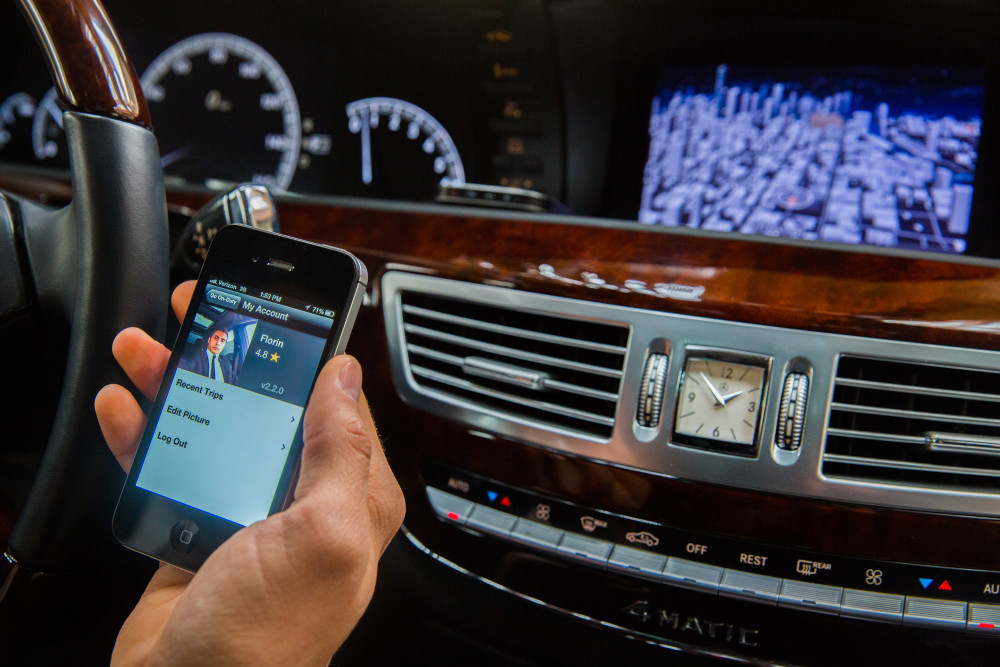By Marissa Lang
San Francisco Chronicle.
Would-be Uber drivers who fail the company’s background check may soon get a second chance.
The catch is this: If applicants can get their their felony convictions reduced to misdemeanors, or get the crimes expunged under Proposition 47, Uber will reconsider their employment. If they still don’t qualify to be drivers, Uber will refer them to an organization that focuses on helping ex-offenders find jobs and become entrepreneurs.
“Why did people overwhelmingly vote in favor of (Prop. 47), and what message is there in that for us?” asked Joe Sullivan, Uber’s chief security officer, referring to the state initiative that passed in 2014. “There’s a pretty clear message we shouldn’t be holding back potential drivers who have a check fraud on their record — they might not have any indication that they’re going to be a bad driver or create a safety risk in any way.”
Beginning Feb. 1, Uber officials will comb through the applications of people who failed a criminal background check and notify those who may qualify for a reduced charge under state law.
Prop. 47, which expires next year, reclassifies certain felony offenses as misdemeanors. Eligible offenses include possession of most illegal drugs and property crimes in which losses were $950 or less — including forgery, check fraud, petty theft, shoplifting and receiving stolen property.
Most applicants who can amend their histories just don’t know it, Uber officials said.
If the applicants follow through, the company will use them to bolster its workforce of 39,000 drivers in the Bay Area.
Anyone who is a registered sex offender, has a history of violent crimes, driving offenses or is on a terrorism watch list will remain ineligible.
Uber insists that loosening its criminal criteria will have no impact on the safety of its passengers.
“We’re not going to do anything to compromise safety,” Sullivan said. “We’re just trying to make sure our process is fair.”
Last year, San Francisco District Attorney George Gascón found that drivers in Los Angeles and San Francisco included convicted sex offenders, identity thieves, burglars, kidnappers and a murderer. He named 25 drivers in a lawsuit, but said those were just a small sample, some of whom happened to receive citations by airport police in San Francisco and Los Angeles.
Prosecutors also found three unlicensed drivers who used someone else’s credentials to drive for Uber.
Uber relies on name-based background checks conducted by Checkr, a nationally accredited company. But those checks, like those of rival company Lyft, do not go back more than seven years and are less reliable than fingerprint-based scans.
Driver applicants who fail Uber’s checks, or don’t qualify because of driving-related offenses in their history, will be encouraged to contact Defy Ventures — a program that teaches job readiness and entrepreneurship to felons through a series of programs.
All Uber referrals must pass Defy’s own background check, which mostly makes sure that offenders don’t lie about their criminal histories or drug tests. Those who do will be given a scholarship to enroll in the training program, which costs participants $100 per month.
Once the participants, called entrepreneurs in training, find a steady job, they can enroll in Defy’s incubator, which trains men and women to formulate and start their own businesses.
“Uber isn’t saying anyone with any kind of crime history can be a driver, but they’re willing to give every one of them a second chance,” Hoke said. “There are very few companies that are willing to be accepting and progressive about this population. They’re taking a risk by doing this at all.”
Defy’s founder and CEO Catherine Hoke said this is the first time a company has reached out and offered to refer rejected candidates to San Francisco’s Defy, which runs in-prison and post-release programs.
“Companies don’t usually do this because a company doesn’t necessarily get brownie points by saying, ‘We believe people with criminal histories should be rehabilitated,'” she said. “It just doesn’t generate the same kind of warm, fuzzy feelings as it would if a company said, ‘We’re going to send a bunch of kids to summer camp,’ but it is so, so important.”














































































































































































































































































































































































